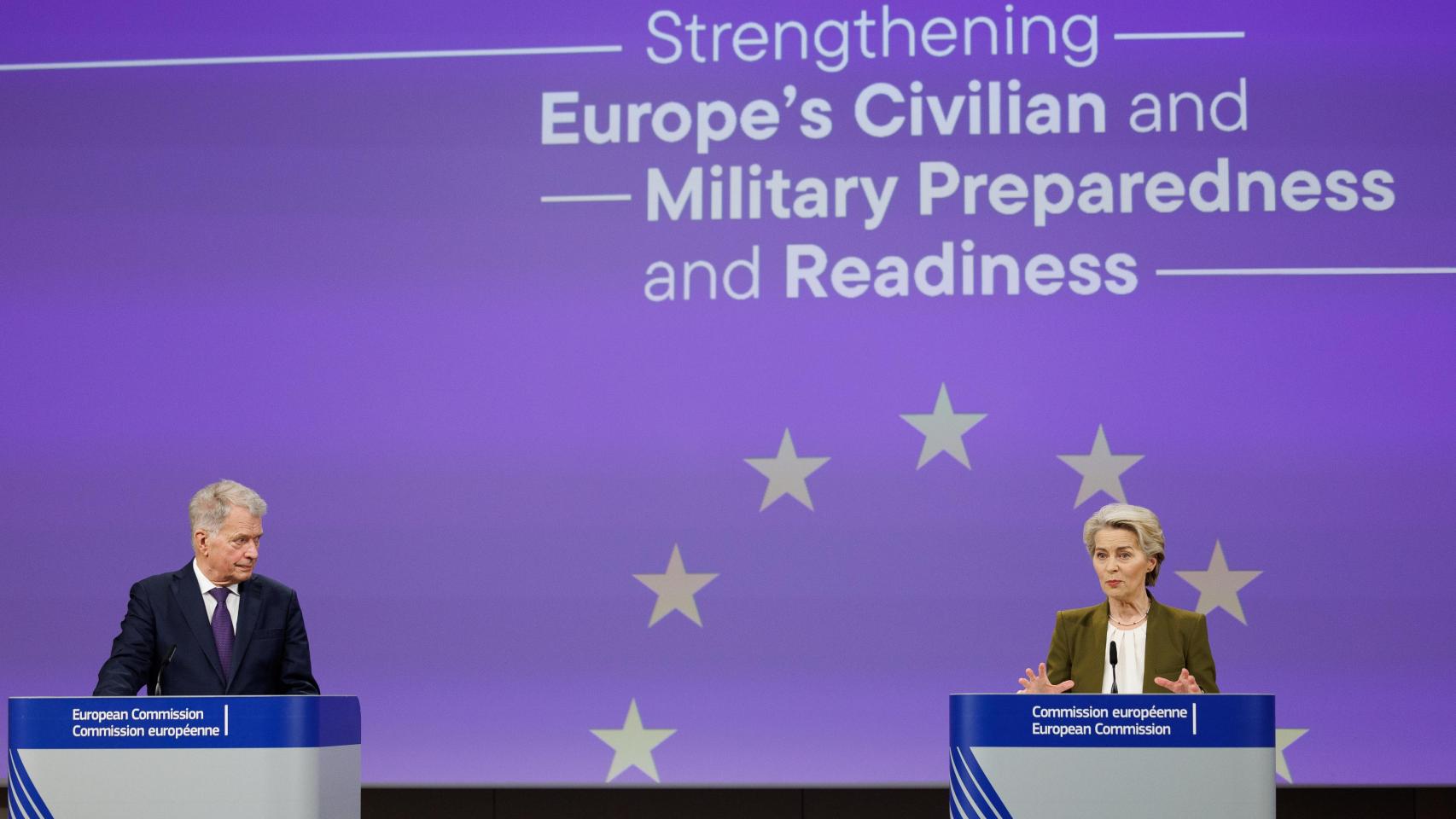
Generalize military service, improve early warning systems or ensure that all EU households are ready for a service autosuficiencia is a minimum of 72 hours during various types of emergencies. The European Union is discussing how to improve defense preparedness to respond to all types of threats. not only in the military field, but also in the civilian field.
The first step was the publication of the report this Friday on the instructions of the President of the Commission. Ursula von der Leyenque ha sido preparador por el ex Presidente Finlandés, Sauli Niinistö. A study advocating the precise export of the Finnish model to the rest of the EU, que lleva has been preparing for a possible conflict with Russia for decades.
“There is no plan. Member State“, Niinistö warns in his report. Nor is there an emergency coordination center at the EU level that unites all actors responding to this type of threat. These are the most important shortcomings that Brussels must officially address. , disasters caused by climate change and other pandemics” is an urgent way to face other risks.
Finland's ex-president juicio del punto de partida de una preparación integral en defense “Put citizens at the center“. La UE y los Estados members deben proteger mejor ir sus ciudadanos reforzando su resiliencia y su capacidad de acción. encourage self-sufficiency y allows que los ciudadanos, en diferentes capacities, desempeñen un papel activo en la la preparation crisis and primera response”, he claims.
Most importantly, UE is guaranteed to provide security that is designed for today. a minimum of 72 hours for various types of emergencies. For example, providing directives regarding food storage, evacuations, chemical, biological, radiological or nuclear threats, access to medical services or schooling in emergencies. Formation to be included in educational programs and information campaigns.
Currently, more than half (58%) of Eurobarometer respondents are not well prepared for disasters and solo el 46% asegura que sabría que hacer si curre una catástrofe. Most Europeans have limited emergency preparedness measures and limited ability to manage basic home functions during a crisis. “This suggests that there is significant scope for improving individual preparedness and household resilience to disasters across the EU,” the study said.
Military service
El exprimer ministro finlandés has rejected a proposal to restore compulsory military service across the EU, as in his country. “No Realista Series”if you add, please refer to the national members of the race. Every time there are more professionals in security-related professions in the EU, there is no barrier.
“It's not just about ensuring that the United States armed forces have enough men and women serving in uniform. The commission estimated last year that The EU lacks around one million cybersecurity professionalsque se necessitan tanto en el servicio public como en el private sector”, ha avisado Niinistö.
To solve the problem, special incentives can be applied, including financing programs in the UE. security-related professional careers the result is attractive to los jóvenes.
The report also suggests structured cooperation between governments to identify them “compulsory experience” in the case of conscription models or the creation of operational reserve systems. The aim is that they can inspire the rest and facilitate enlargement within the EU.
Un ejemplo es el Estonian model 'ciberservicio militar obligatorio'which gives young people the opportunity to become cyber security experts while in public service
military. El expresidente finlandés además el caso de Polonia, que desarrolló un servicio military básico voluntario de un año; De o Alemania y Países Bajos, que están están de la modelo de servicio obligatorio selectiveo al estilo sueco.
Another important tool to improve defense preparedness is the gradual creation of an EU Intelligence Service, although Niinistö himself acknowledges the practical difficulties of this measure due to the still-persistent mistrust among member states.
Los Gobiernos europeos deben además tomar medidas conjuntas para making it difficult for hostile intelligence services to operate within the EU; As a red antisabotage for Ayudar and members of los Estados, a preventive y responsible or sabotaje por parte de potencias extranjeras.
Finland's ex-president financing “Defense needs urgent help”. “In preparation, but for an insignificant comparison, a situation that is important to prepare for a crisis”. Su informe proposes to allocate at least 20% of the EU budget to these issues. In addition, members of los Estados and private financial institutions should explore new formulas to mobilize more money, e.g preparation bonuses.
You may also like
-
Segue la polemica con la despedida de Rafa Nadal: collect more than 9,000 signatures in one day to ask for a “decent tribute”
-
When Aldama was released from prison, he warned Sanchez: “Que no se preocupe, va a tener pruebas de todo lo que se ha dicho”
-
Feijóo chose Junts y PNV to lead the censorship bid against Pedro Sánchez
-
Liberan a Damán y Note, dos linces ibéricos adultos, la zone de las Tierras Altas de Lorca reintroducción de consolidar
-
El juez Pedraz pone libertad a Aldama 8 horas después de que svelase sus tratos con miembros del Gobierno
